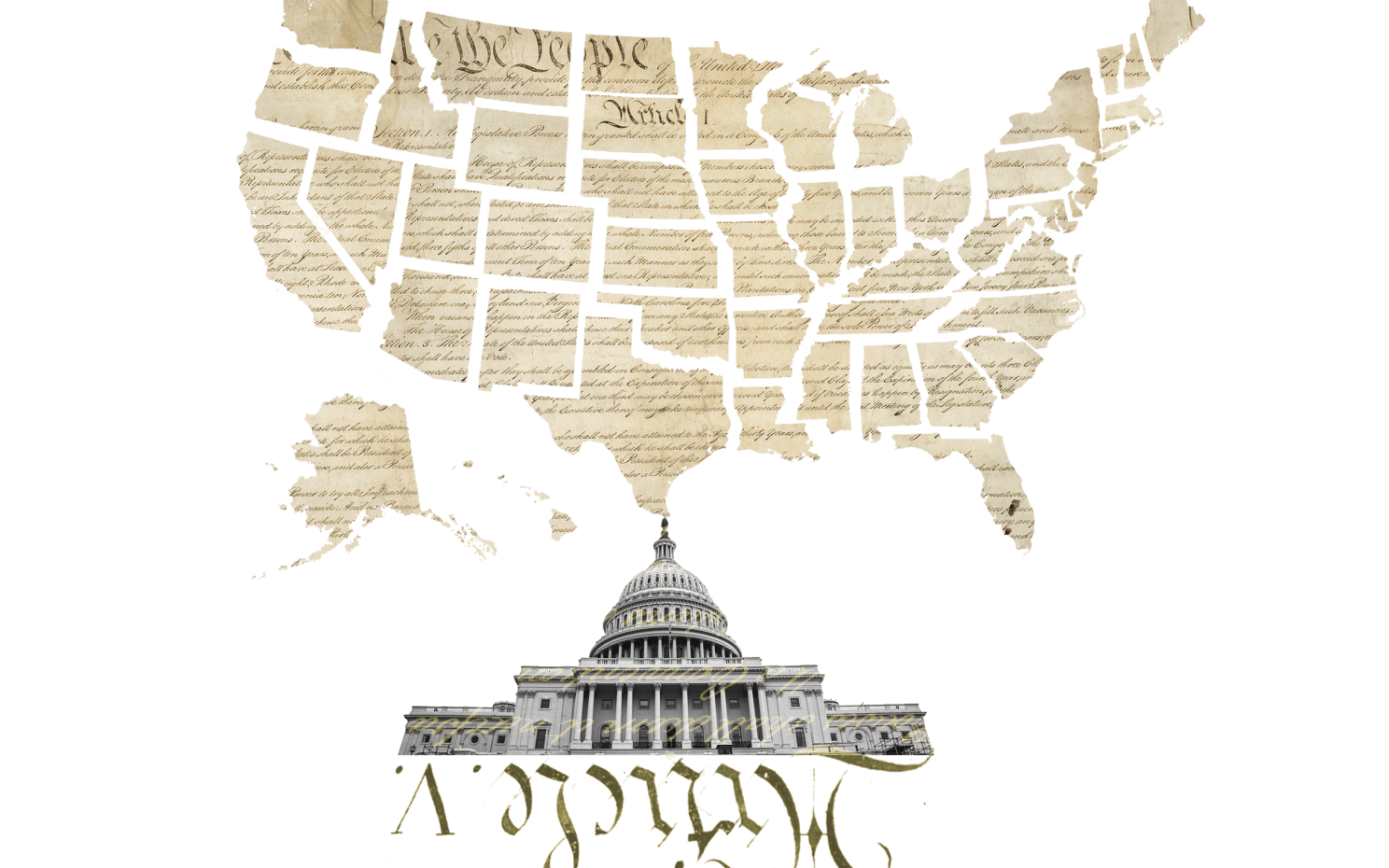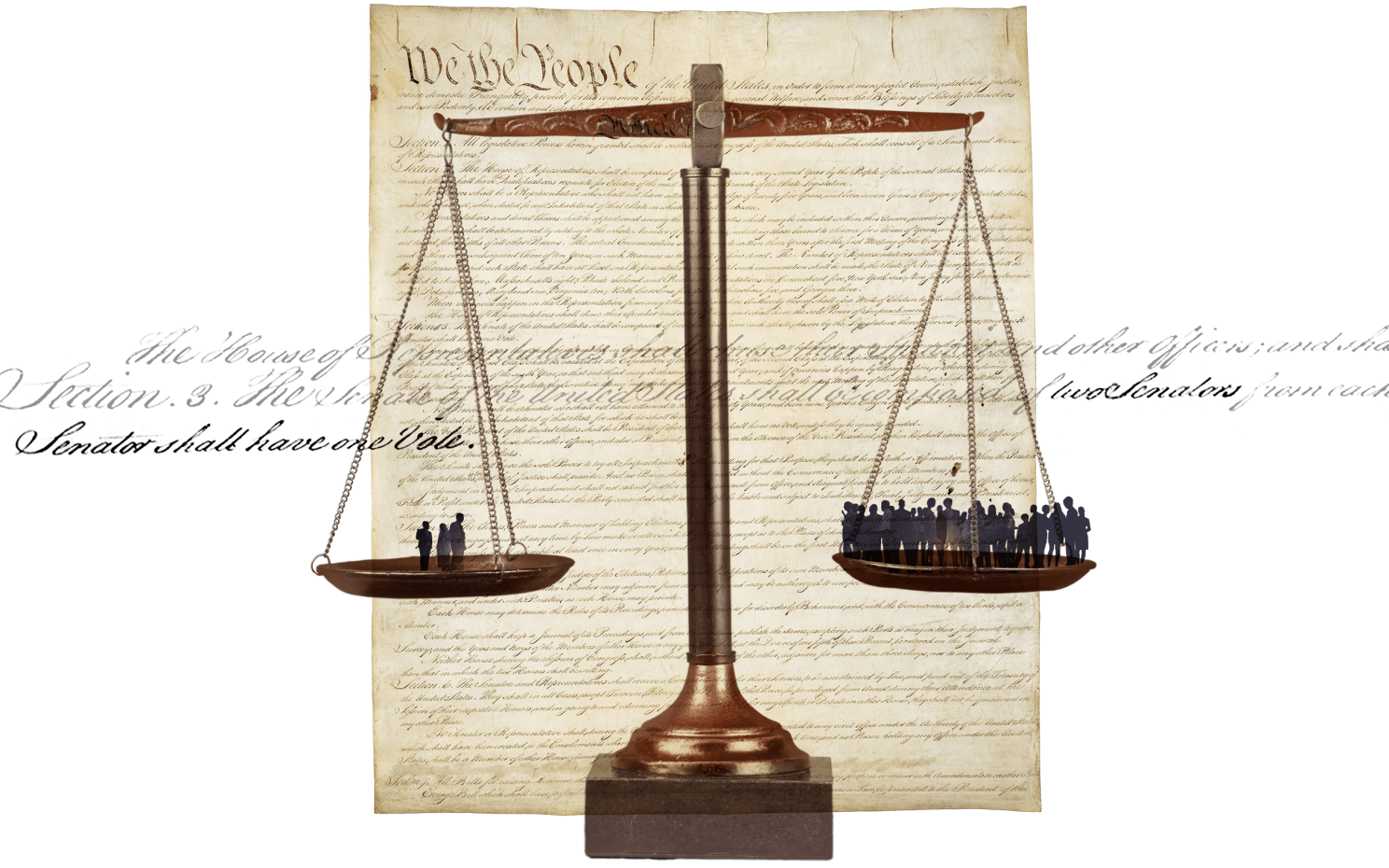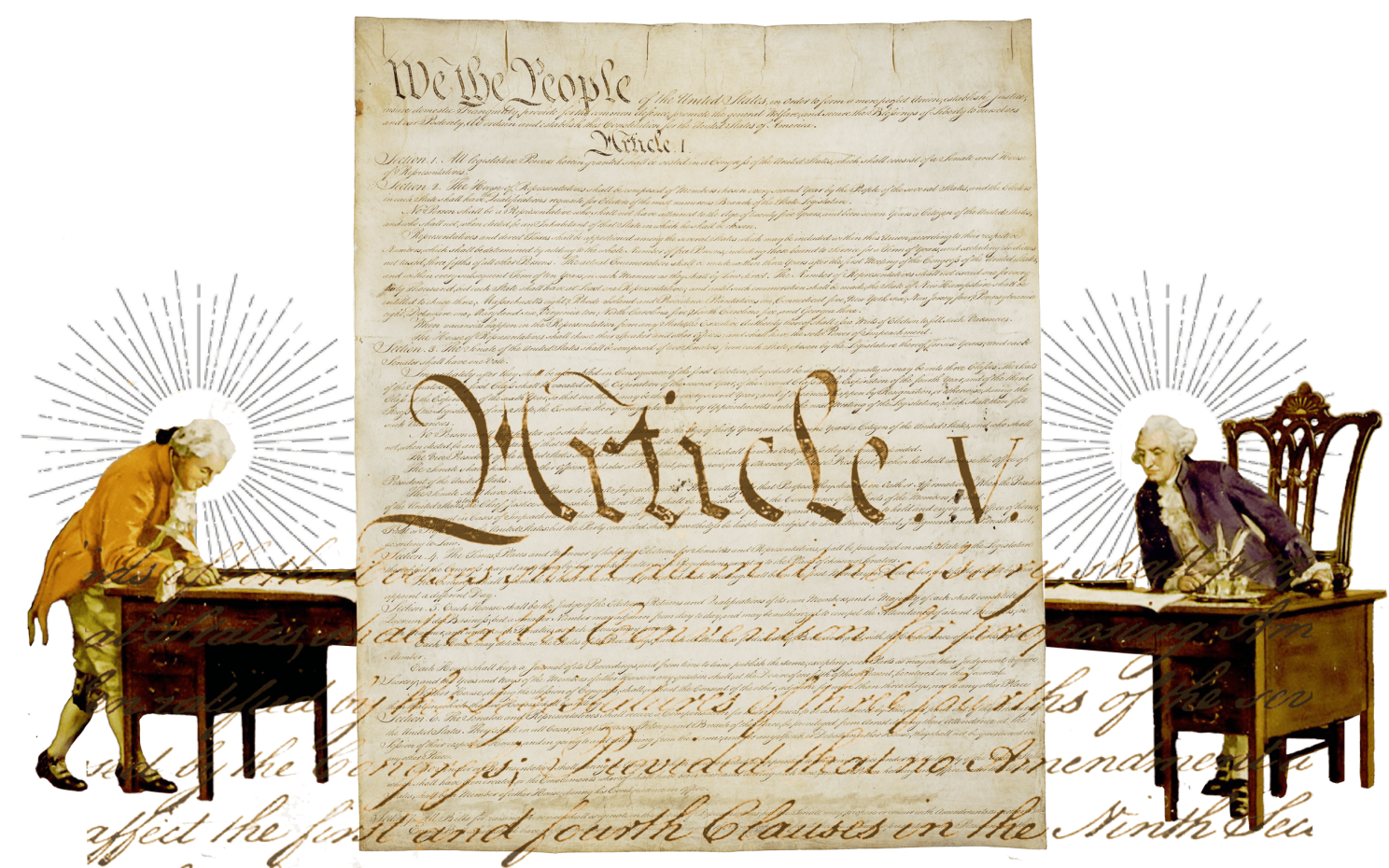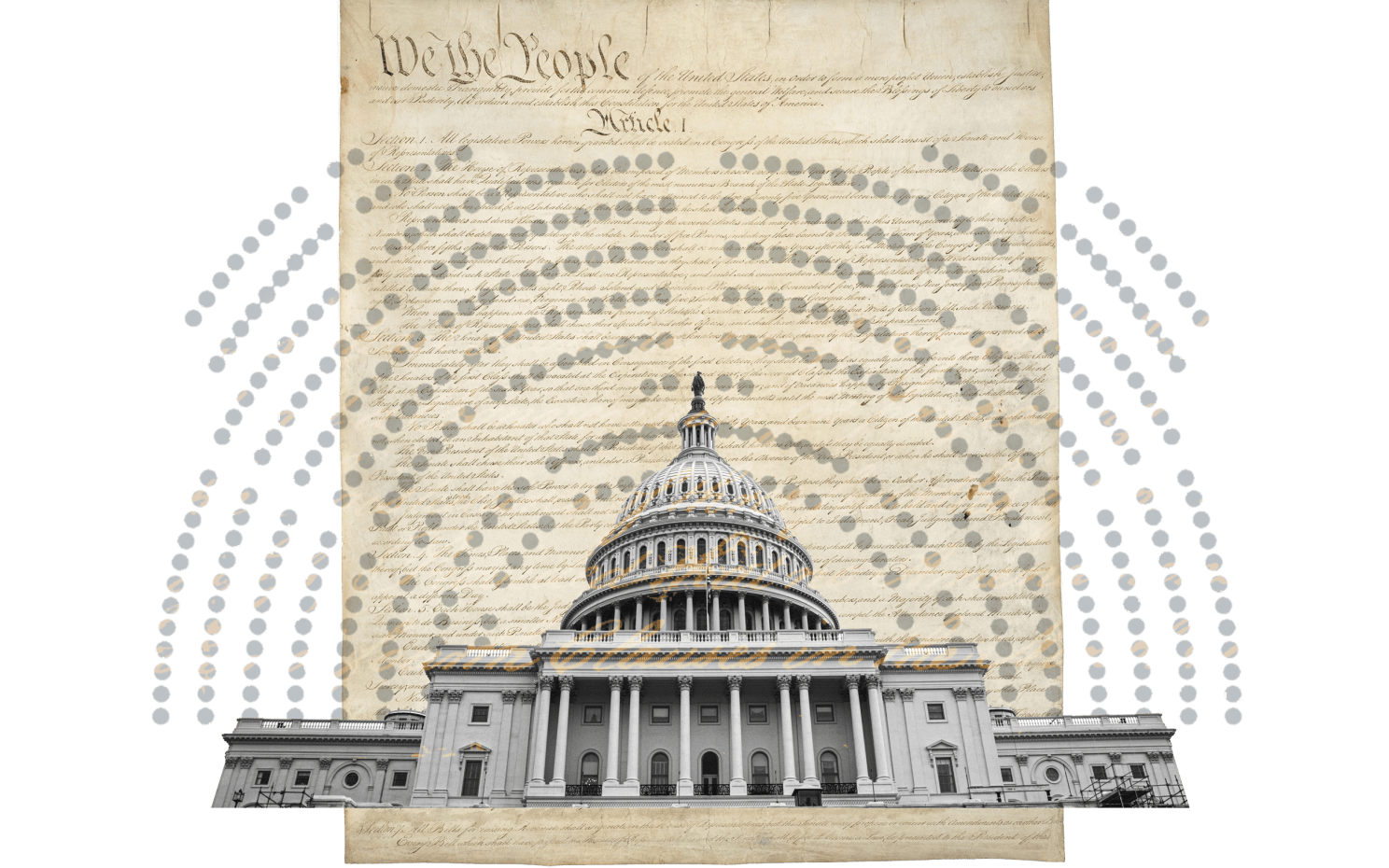Enshrine an affirmative right to vote
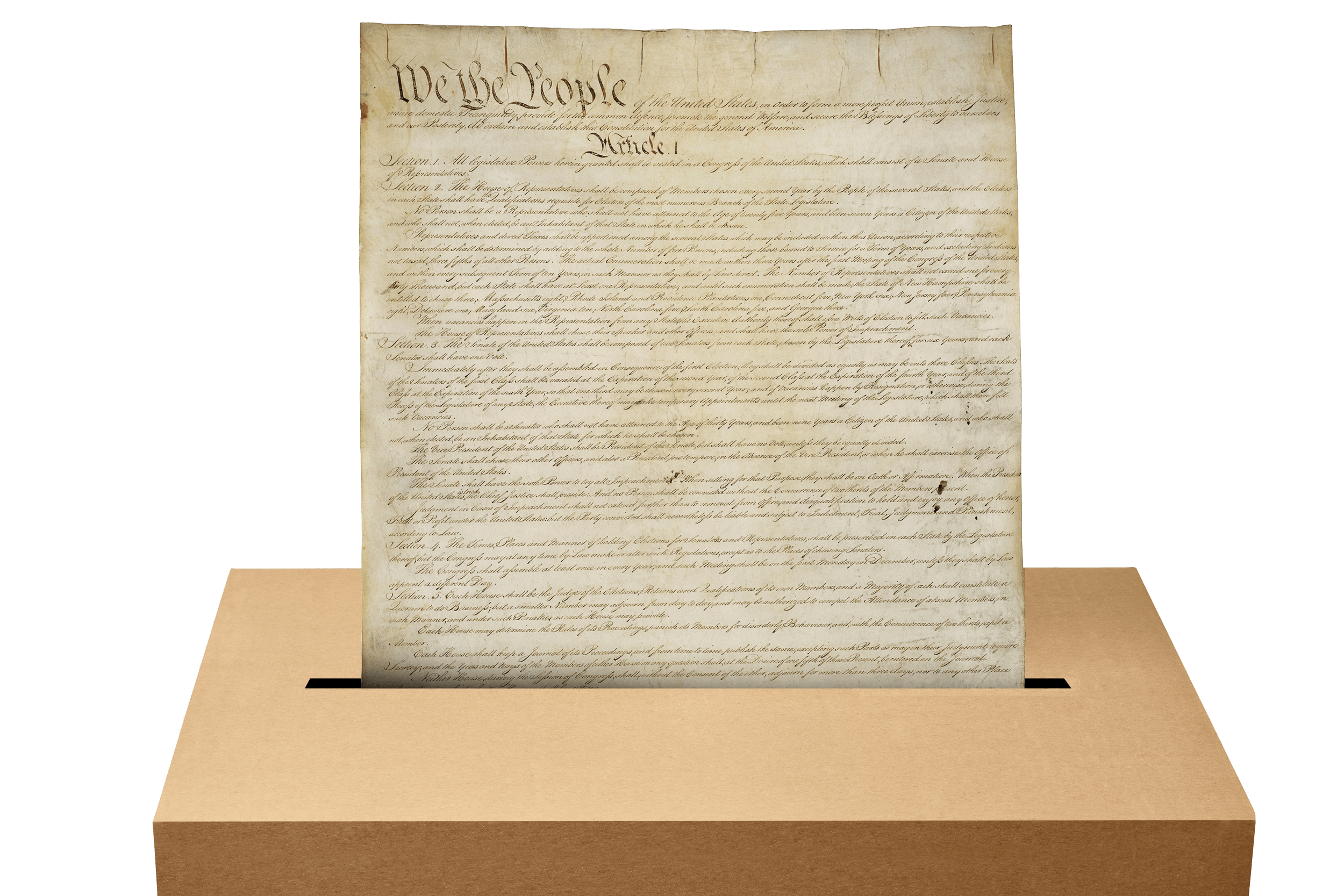
Illustration by Judy Blomquist/Harvard Staff
Amendment would demonstrate ‘absolute commitment’ to full participation in U.S. democracy, argues Tomiko Brown-Nagin
Part of the Fixing the Constitution series
Many analysts and citizens believe that the Constitution, more than 230 years old, is out of touch with contemporary America. We asked five scholars to isolate the problem they’d attack first.
Tomiko Brown-Nagin is the Daniel P.S. Paul Professor of Constitutional Law, dean of the Harvard Radcliffe Institute, and Professor of History.
The right to vote is so fundamental to democratic governance that I imagine many Americans would be surprised to learn that it is not, in fact, enshrined in the U.S. Constitution. This most basic form of participation in the political process varies across jurisdictions and has sometimes been denied or curtailed — often with disproportionate affects across lines of race, ethnicity, and wealth — to achieve specific political and anti-democratic ends. The solution? Amend our Constitution to establish for all Americans an affirmative right to vote and confer upon Congress the power to enact legislation to enforce it.
In the absence of such an amendment, the fundamental rights of many citizens are vulnerable. U.S. voting rights are premised on state law and the federal Voting Rights Act of 1965, provisions of which have been struck down in recent years by the Supreme Court. Most notably, in the 2013 case Shelby County v. Holder, the Court struck down the act’s formula for determining which jurisdictions are subject to “preclearance,” or a mandatory federal review of proposed changes to voting laws because of their history of discrimination. A majority of the Court held that this provision was antiquated and obsolete: the sort of abuses that had animated the formula — such as race-based denials of the right to vote — were a thing of the past, these justices concluded.
“The right to vote is so fundamental to democratic governance that I imagine many Americans would be surprised to learn that it is not, in fact, enshrined in the U.S. Constitution.”
This analysis of racial dynamics struck many as overly optimistic. Justice Ruth Bader Ginsburg likened the decision to “throwing away your umbrella in a rainstorm because you are not getting wet.”
In October, the Court heard oral arguments in another Voting Rights Act case, Merrill v. Milligan, which concerns congressional redistricting in Alabama. The state’s plan is seen as an example of “packing and cracking” to dilute the influence of Black voters in violation of the act. Though doing so would overturn decades of precedent, today’s Court may well uphold Alabama’s map and further dismantle federal voting rights protections.
At the heart of these legal challenges are questions about whether the Voting Rights Act is too blunt an instrument for today, and whether its aim of full participation in the political process is consistent with the Constitution and with the scope of Congress’s authority. A constitutional amendment would directly address these questions by enshrining an affirmative and universal right to vote — and Congress’s authority to enforce it — in the very text of the Constitution. The amendment process would demand civic engagement and force us to decide what kind of society we want to be. Its outcome would, I hope, demonstrate that a majority of Americans, when pushed to consider the alternatives, are committed to fair, free, and full political participation.
To be sure, the Court would still need to interpret the text. But a constitutional amendment, if enacted, would, at the very least, tether the process to contemporary social dynamics and political pledges.
How do we achieve this? Not easily, and perhaps not at all, given the high stakes and the reality that some have shown that they are not, in fact, committed to full democratic participation.
But which of the major achievements in American history happened overnight? And which of them looked likely five or 10 years before they became reality?
Easy or difficult, likely or unlikely, we must keep in our sights the goal of renewing an absolute commitment to the vote — which the late congressman and human rights activist John Lewis rightly called the “most powerful non-violent tool we have in a democracy.”
— As told to Christina Pazzanese/Harvard Staff Writer



